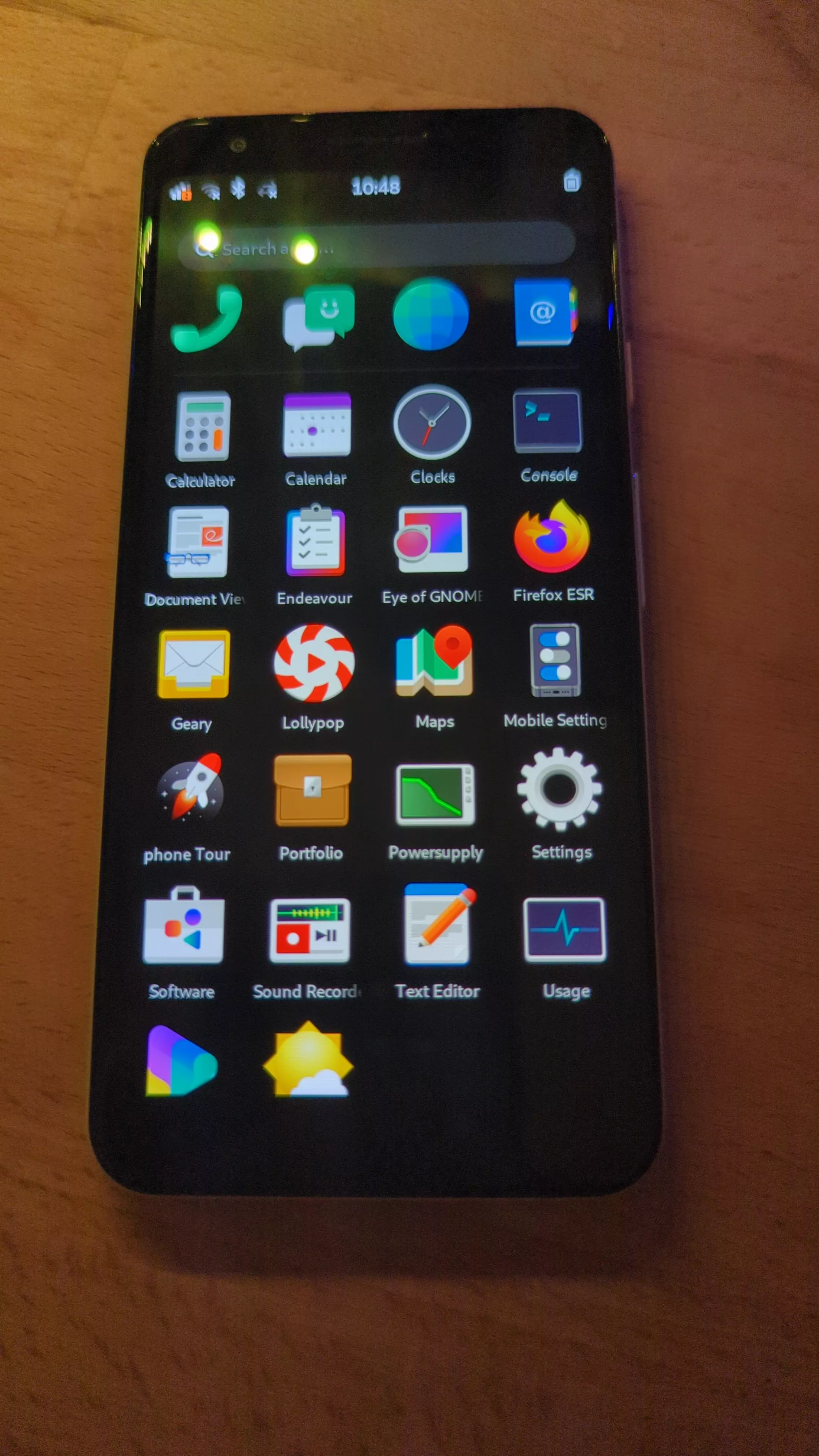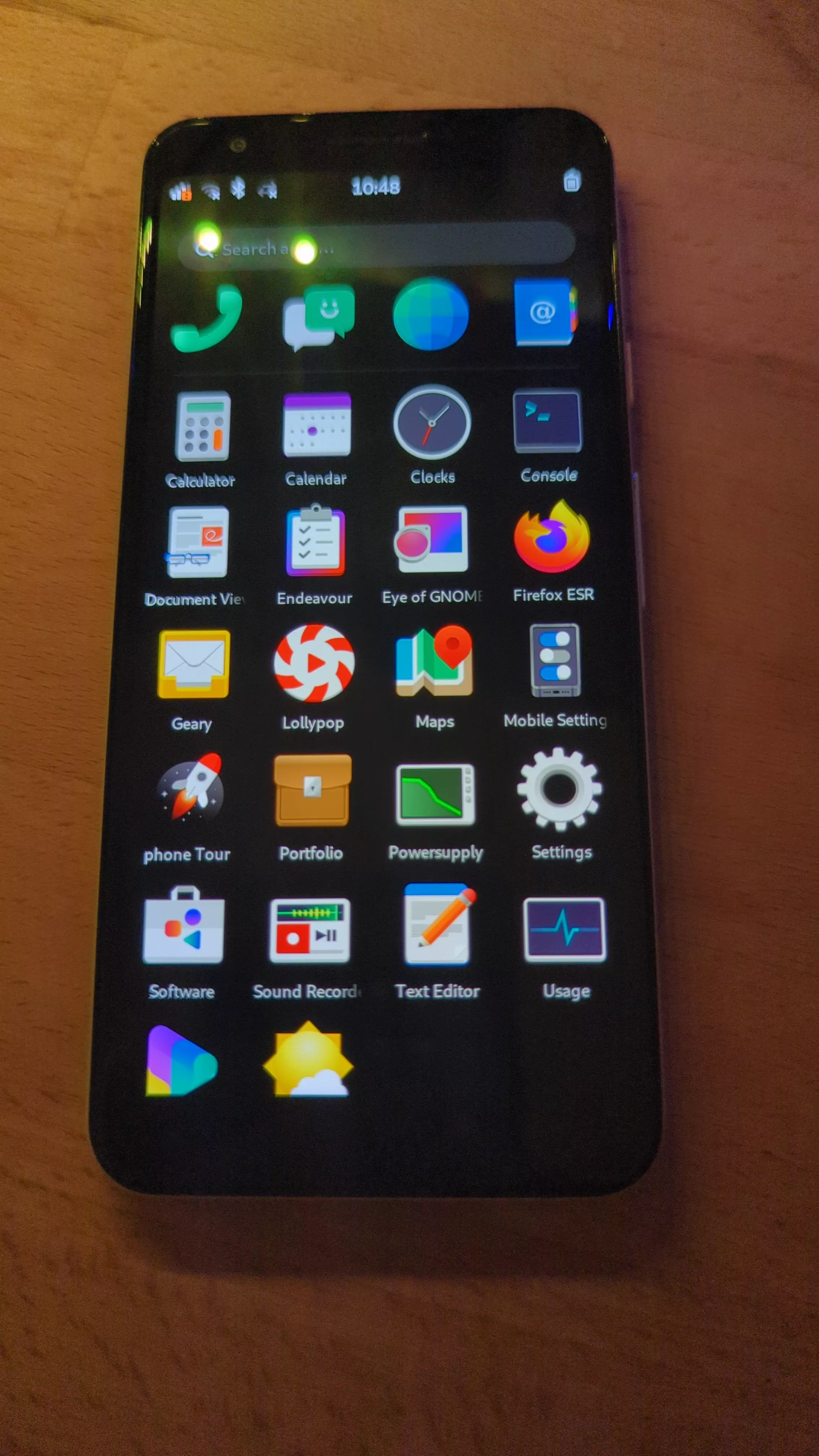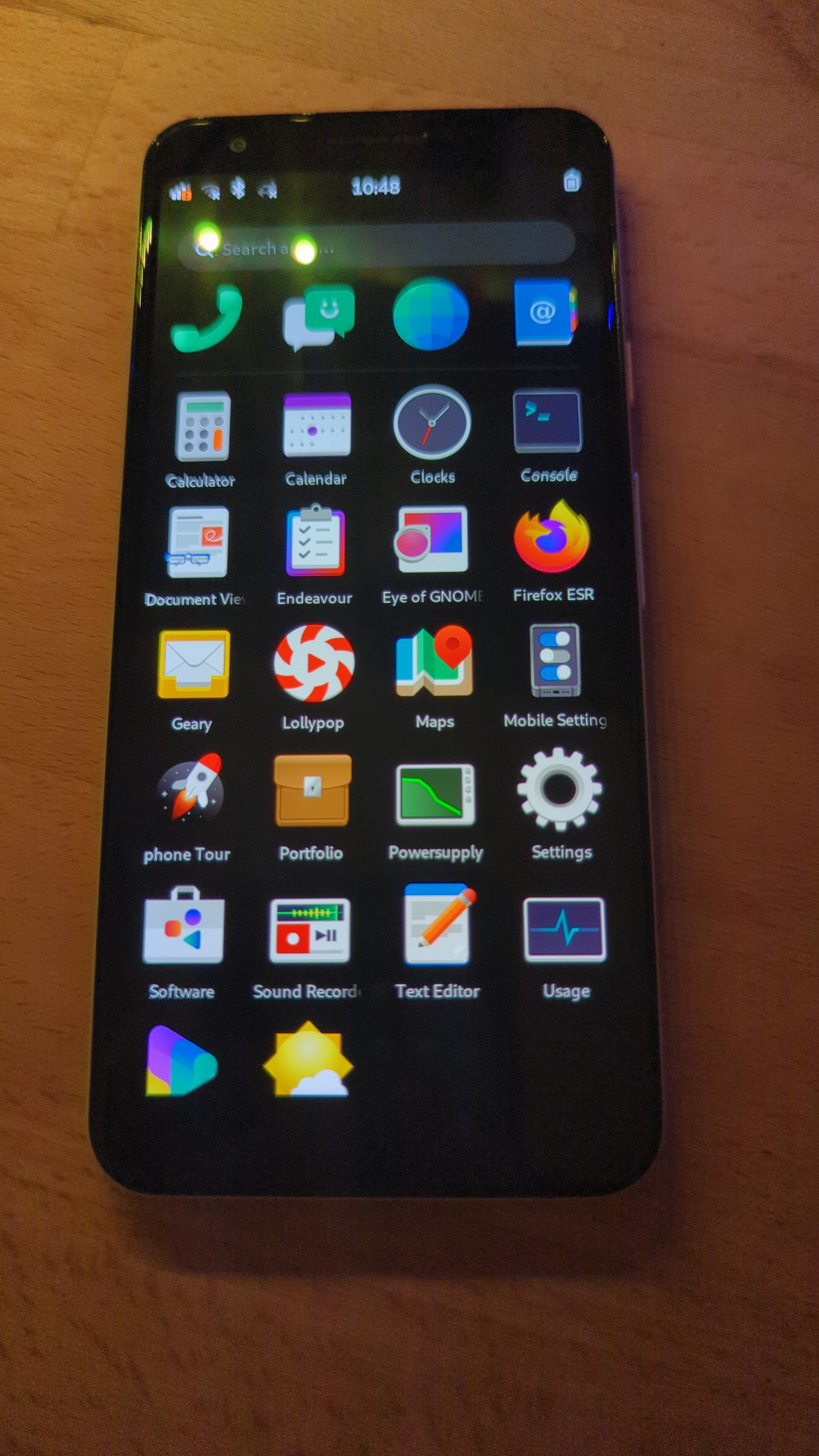This is a follow-up to my earlier posts:
https://lemmy.sdf.org/post/12809764 https://lemmy.sdf.org/post/19600671
We're Getting Closer.
It's just small stuff left that needs a bit of piecing together, though I've now been daily driving my port for the past two weeks already.
This Works
- booting
- display
- touch
- modem <- You might have to switch to the other slot if it does not work:
mmcli -m 0 --set-primary-sim-slot=1, options are1or2. Note that the modem could also be a different number, maybe try-m 1if it is not found as the command will reboot the modem and then it changes. - plymouth
- battery/charging
- mobile data
- wifi
- torch
- suspend
- call audio
- vibration
- Bluetooth™
- full disk encryption
- eSIM (I'm working on the packaging for the tool you need to provision it)
- SMS
- audio (ALSA config not packaged, but can be added manually)
- camera (have taken a few photos, but the kernel driver is still work in progress and sometimes it just does not work)
This Has An Unknown Status
- Fingerprint Sensor
- NFC (should work, does so on pmOS)
This Does Not Work Yet (Soon™)
- GPS
- USB host mode (no Kernel support yet, but apparently this is being worked on)
- Verified Boot (first need to do research whether this is actually feasible)
This Is Missing And Will Come Later
- accelerometer
- magnetometer
- ambient light sensor
- barometer
Project Status
To Do List
- Make installer images work on this device
- Have droid-juicer run on installer images
- Get into the repos:
tinyalsaandq6voiced(I've already packaged both)- ITP for Tinyalsa: https://bugs.debian.org/cgi-bin/bugreport.cgi?bug=1079473
- ITP for q6voiced: https://bugs.debian.org/cgi-bin/bugreport.cgi?bug=1080483
- Combine SDM670 kernel patches with those in the Mobian qcom kernel
Done List
- New release of qcom-phone-utils required so that my patches are available from the repo
- https://salsa.debian.org/DebianOnMobile-team/qcom-phone-utils/-/commit/4f77281197c6ba1cfc1a82596157d00e8a7e014b (firmware folders)
- https://salsa.debian.org/DebianOnMobile-team/qcom-phone-utils/-/commit/9aa29a1d0bd2327e9c74317d516a8aeecf820304 (fixes bootimg generation with LUKS)
- https://salsa.debian.org/DebianOnMobile-team/qcom-phone-utils/-/commit/3ddb192b5c78b444065f23647b373ad66ce3617d (fixes on-screen keyboard for LUKS passphrase)
- Remove hard-coded value in the
droid-juicersystemd unit - Make sure my
q6voicedpackage no longer includes a hard-coded config for this device (known solution, need to implement) - add udev rule for the vibration motor to the right package
Misc Issues
- ALSA config for the device has not been upstreamed yet
- Issues with 5 GHz wifi
- Can be worked around by forcing the phone to only use the 2.4 GHz band, for example using
nmtui, the network settings of GNOME/Phosh are bit too simplistic for that
- Can be worked around by forcing the phone to only use the 2.4 GHz band, for example using
- No idea how to get the call audio on Bluetooth, meaning you will have to hold the phone or use a cable, for now
(This is a non-exhaustive list)
Low Priority
- create/find script/tool that brings up Bluetooth & then package it
Other than that... Everything should be there. It's definitely usable already.
Just a few smaller quirks to iron out and two packages to get into the repo.
The Sources (Use The Source, Luke)
- My efforts of packaging a device-specific kernel: https://salsa.debian.org/erebion/sdm-670-linux (which will be used until all patches are part of upstream Linux and we can finally use a regular mainline kernel)
- mobian-recipes, which is used to build images: https://salsa.debian.org/Mobian-team/mobian-recipes
- droid-juicer, which retrieves some important files from some partitions: https://gitlab.com/mobian1/droid-juicer
- https://wiki.postmarketos.org (lovely folks, thanks for sharing everything you found out the hard way :D)
Thanks For All The Fish
Huge thanks to be sdm670-linux project and flamingradian who runs the project (just one person!) to make sure the Kernel works on those devices! :)
I don’t know how Kernel development works, so I would have never started porting without this project.
Find that here: https://gitlab.com/sdm670-mainline/linux
Questions Accepted / Ask Me Anything About The Project
I will gladly answer all questions, I hope that more people will start porting if it becomes clear that this is not arcane magic. It’s mostly just arcane. And a community of friendly people that try to be helpful.#



Just type in a few commands and you'll have an image you can flash.
I've got a detailed description of what to do: https://git.erebion.eu/forgejo/erebion/sargo-temp